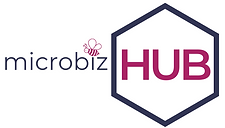Pros and Cons of Being Employed vs. Self-Employed: Which Path is Right for You?
- MicroBiz Hub
- Jun 12, 2024
- 2 min read
Updated: Jun 13, 2024
Deciding whether to stay employed or become self-employed is a significant career choice that impacts your lifestyle, financial stability, and personal fulfillment. Both paths have their own set of advantages and challenges. Understanding these can help you determine which one aligns best with your personality and goals.
In this blog, we’ll explore the pros and cons of being employed versus self-employed and offer a simple test to help you figure out which path might be right for you.

Employed: Stability and Structure
Personality Traits
Security-Seeker: Values financial stability and predictable income.
Team Player: Enjoys collaborating with colleagues and being part of a team.
Routine-Oriented: Prefers a structured work environment with clear responsibilities.
Risk-Averse: Comfortable with lower levels of risk and prefers certainty.
Pros of Being Employed
Stable Income: Regular paychecks provide financial security and predictable budgeting.
Benefits: Access to employer-provided benefits like health insurance, retirement plans, and paid time off.
Set Work Hours: Fixed work schedules help maintain a work-life balance.
Support System: Access to colleagues, mentors, and management for guidance and support.
Career Advancement: Opportunities for promotions, raises, and career development within the company.
Less Responsibility: Focus on your specific role without worrying about the overall management of the business.
Cons of Being Employed
Limited Control: Less freedom to make decisions or change work processes.
Income Cap: Salary may have a ceiling, limiting earning potential.
Dependency: Job security is tied to the employer’s financial health and business decisions.
Rigid Schedule: Less flexibility in choosing work hours and taking time off.
Limited Creativity: May have less opportunity to innovate or pursue personal ideas.
Self-Employed: Independence and Flexibility
Personality Traits
Entrepreneurial: Thrives on creating and managing new ventures.
Independent: Prefers working autonomously and making decisions.
Flexible: Enjoys setting their own schedule and adapting to changes.
Risk-Taker: Comfortable with taking calculated risks and dealing with uncertainty.
Pros of Being Self-Employed
Control: Full autonomy over business decisions, operations, and strategies.
Flexibility: Ability to set your own schedule, work hours, and choose projects.
Unlimited Income Potential: Earnings are directly tied to your business success and efforts.
Personal Fulfillment: Opportunity to pursue passions and build something of your own.
Tax Benefits: Potential for tax deductions related to business expenses.
Diverse Opportunities: Ability to explore different industries, clients, and projects.
Cons of Being Self-Employed
Income Uncertainty: Inconsistent income, especially in the early stages of the business.
No Benefits: Lack of employer-provided benefits like health insurance or retirement plans.
Increased Responsibility: Responsibility for all aspects of the business, including finances, marketing, and operations.
Isolation: Potential for loneliness or lack of support compared to a team environment.
Longer Hours: Often requires more than the standard 9-5 work hours, especially when starting out.
Risk of Failure: Higher risk of business failure and financial loss.
Choosing between being employed and self-employed depends largely on your personality, values, and career aspirations. Those who seek stability, structured schedules, and a supportive environment may find traditional employment fulfilling. On the other hand, if you crave independence, flexibility, and the thrill of entrepreneurship, self-employment might be the right path for you.
Remember, there’s no one-size-fits-all answer. Consider your preferences, strengths, and what you’re willing to compromise on. Whichever path you choose, focus on aligning your career with your personal goals and what brings you the most fulfillment.
Have you decided on your path or are you still contemplating? Share your thoughts in the comments!

Comments